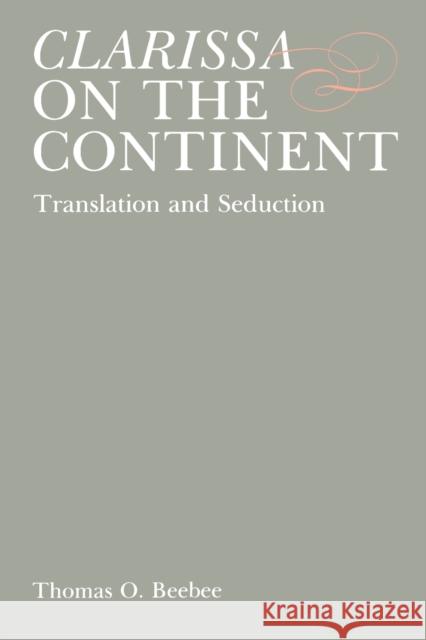Clarissa on the Continent: Translation and Seduction » książka
Clarissa on the Continent: Translation and Seduction
ISBN-13: 9780271026169 / Angielski / Miękka / 1990 / 244 str.
"Clarissa" on the Continent defines and explores two strategies of literary translation--creative vs. preservative and strong vs. weak--as they transform one of the most influential English novels. Thomas Beebee compares the two opposing strategies as they influence the French translation of Clarissa by the novelist Antione Francois de Prevost and the German translation by the Gottingen Orientalist Johann David Michaelis, and in doing so he demonstrates that each translator found authority for his procedure within the text itself. Each translation is also examined in light of Richardson's other writings and placed in its literary and cultural context. This study uses translations in order to interpret Clarissa, to show how the basis for the novel's reception on the Continent was laid, and to explore the differences and interactions among three literary and cultural systems of the eighteenth century. The close examination of these two important translations enable the formulation of not only a theory of creative vs. preservative translation but also the interconnections between literary theory and translation theory. Beebee also looks at later translations of Clarissa as products of literary and historical change and at Prevostian strategies of the novel.











